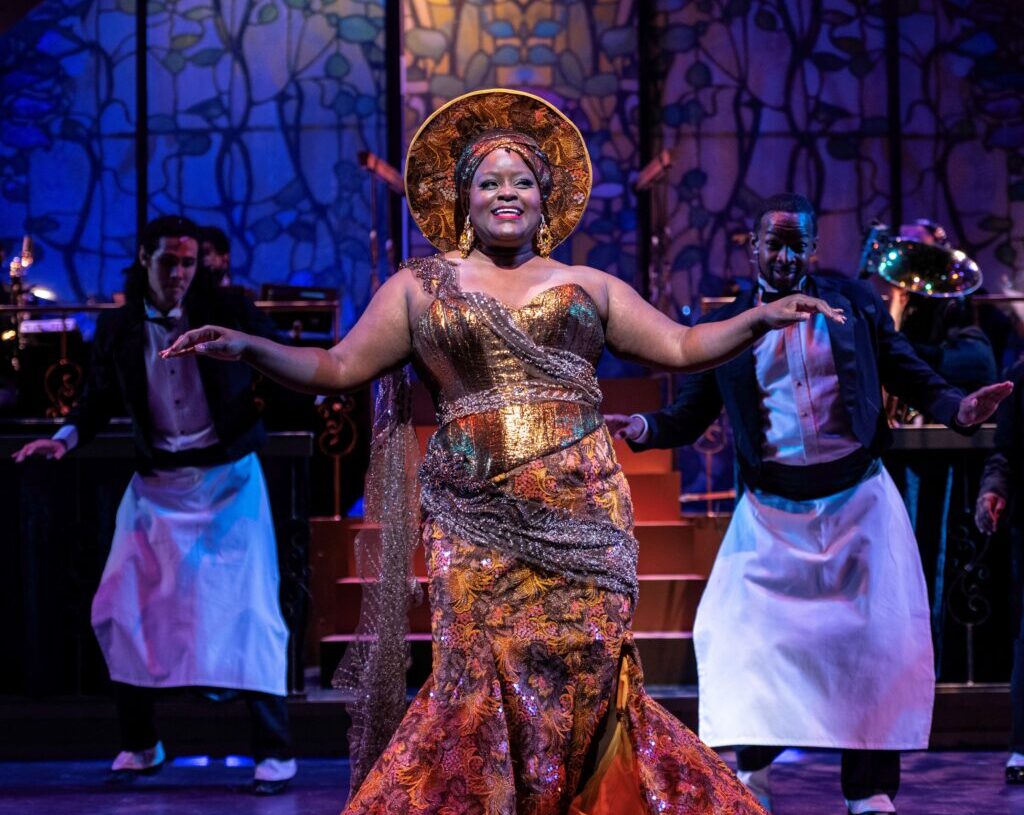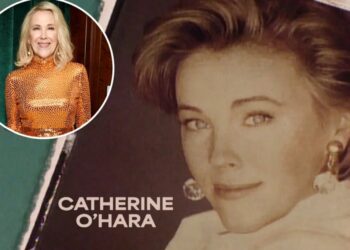The best matchmakers are total pieces of work. They have to be. If you’re going to have any success bringing people together, you need the extroversion to work a crowd and the busybody’s taste for engineering other people’s lives, plus the confidence that you know what’s best for them — and the ability to convince them you actually do.
The best matchmakers are total pieces of work. They have to be. If you’re going to have any success bringing people together, you need the extroversion to work a crowd and the busybody’s taste for engineering other people’s lives, plus the confidence that you know what’s best for them — and the ability to convince them you actually do.
Who cares if you come across as a little ridiculous? So much the better, giving your prospective couples an excuse to share a knowing look and perhaps a little conversational spark. Subtlety in these matters is overrated.
This is possibly the aspect of “Hello, Dolly!” that has always been the most rooted in reality. And why the central character has always been a safe space for entertainers who chronically teeter on the brink of Too Much — Carol Channing, Barbra Streisand, Bette Midler.
And it’s why the Olney Theatre’s delightful new staging, directed by Kevin McAllister, got off to a somewhat slow start. In her opening scenes, D.C. native Nova Y. Payton — a powerhouse vocalist with charisma to burn and two Helen Hayes awards at home — brings almost too much dignity to the role, deftly embodying Dolly Gallagher Levi as a briskly independent businesswoman and still-grieving widow who yearns to move on. A real person, in other words. (In program notes, McAllister says he wanted his characters more “grounded” than in past productions of the 1964 musical.)
But it proves to be a performance that builds through the night. With every return to the stage in ever more dazzling gowns, Payton’s Dolly gets looser and wilder, her self-possession dissolving into a contagiously joyful self-absorption. By her third scene she snowballs into the full-on capital-C character you’ve been waiting for. “Rip-ple, rip-ple, rip-ple,” she coos over the musculature of her client-turned-target Horace Vandergelder — a stalwart Moses Villarama as the “half-a-millionaire” hardware king of 1890s Yonkers — to the giggling delight of the audience. Only to make them weep minutes later (or was that just me?) during the emotional carpe diem of “Before the Parade Passes By,” where the groundedness pays off.
The brain wants to resist this musical — the parasols and train whistles and derby hats, the pirouetting waiters and pratfalling swains, the cornball of the Disneyfied Gilded Age setting. “Hello, Dolly!” is always better than you think, though, with witty banter and Jerry Herman songs you didn’t realize were waiting to be unearthed from deep in your head (“Put On Your Sunday Clothes,” “Elegance”). If “Dolly” isn’t as revered as, say, “Gypsy,” another Everest for Broadway divas of a certain age, the perception of schmaltz might only be part of the reason: It’s also just a surprisingly hard one to pull off. Not only Dolly but most all of the roles amount to broadly comic caricatures who still must credibly deliver some of the most soaring and heart-touching show tunes of the era.
Fortunately, McAllister is blessed with a cast more than capable of parsing these contradictions. Caitlin Brooke, in particular, finds layers in hatmaker Irene Molloy — no mere ingenue but a flustered career woman grown weary of the turn-of-the-century Manhattan dating game — and invests one of the less-memorable songs, “Ribbons Down My Back,” with powerful yearning. As Cornelius and Barnaby, the hardware clerks looking for love, Michael Perrie Jr. and Ricky DeVon Hall bumble amusingly and dance well — and they’re just fun to look at together, one with a floppy mustache on a long face, the other charmingly cherubic. Alex De Bard does such a nice bit of ingratiating dithering in the sometimes-overlooked role as Irene’s assistant Minnie that you can imagine her growing into a Dolly in a few decades. Choreographer Eamon Foley keeps a gifted ensemble of at least a dozen dancers on their toes — shifting from train-riding townsfolk to tray-swirling waiters to frenetic polka competitors.
Horace is the hardest needle to thread. The handsome, warm-voiced Villarama is saddled with the one-dimensional role of a charmless grouch who makes clear he wants a wife for the sake of help around the house and seems endlessly frustrated by Dolly’s antics. What, besides the half-million, does she see in him? And what exactly makes him — spoiler alert — belatedly fall for her? Even Dolly herself has to wonder.
“You’re the first citizen of Yonkers. Your wife would have to be somebody,” she notes in the show’s closing moments. “Answer me, Horace: Am I a somebody?” Coming from Payton, the question answers itself.
Hello, Dolly!, through Jan. 4 at Olney Theatre Center in Olney, Maryland. About two and a half hours with an intermission. olneytheatre.org.
The post ‘Hello, Dolly!’ is harder than it looks, and better than you expect
appeared first on Washington Post.




